
Indonesia
Capital: Jakarta; GDP growth (annual %) 2016 : 5.0%-
Arsyadjuliandi Rachman, Governor of Riau
Business-friendly Riau is working to encourage visitation and investment while as well preserving its forests
Strategically on the eastern coast of Sumatra, along the Strait of Malacca and close to neighboring Malaysia and Singapore, Riau province sits at the center of the ASEAN region and is known for its natural resources and endless forests.
More >
The provincial capital and major city is Pekanbaru, which translates as ‘new market’ in Indonesian. It has long been known as a mercantile center since the Kingdom of Siak fell under the influence of the Dutch East India Company during the mid-1700s. This strategic city of trade was transferred to the Dutch authorities and remained a commercial investment during the colonial period. -
What’s Gone Wrong With Indonesia’s Democracy?
Amid the 2017 Jakarta Election, some loosely interpreted laws (such as regarding blasphemy, anti-Pancasila, and treason) have frequently been used as a tool for political manoeuvre both by the establishment and the opposition. The majority prominent victim of this exploitation of democratic space is the incumbent Jakarta Governor, Basuki Tjahya Purnama.
Political balancing nuanced the government’s intention to disband Hizbut Tahrir Indonesia (HTI), one of the mobilising forces behind the anti–Basuki Tjahya Purnama (Ahok) series of rallies throughout Indonesia. Indeed, the government has been closely monitoring HTI for years, due to suspicion over their activities promoting world Islamic caliphate ideology, which is deemed incompatible with Indonesia’s democratic values.
More > -
Seychelles promotes eco-culture tourism in Kutai Kartanegara, Indonesia
Seychelles recently organized the visit of 15 youths and students from 8 nations to Kutai Kartanegara in East Kalimantan as part of its effort to help promote compassionate destinations of eco-culture in Indonesia.
Seychelles Appropriate Envoy for ASEAN, Mr. Nico Barito, said the youth and students came from France, the Netherlands, Japan, Liberia, Madagascar, Belgium, Dominican Republic, and Italy.
More >
- Key Facts
-
Full name: Republic of Indonesia
Population: 232 million (UN, 2010)
Area: 1.9 million sq km (742,308 sq miles)
Major languages: Indonesian, 300 regional languages
Major religion: Islam
Life expectancy: 68 years (men), 72 years (women) (UN)
Monetary unit: 1 rupiah (Rp)
Main exports: Oil and gas, plywood, textiles, rubber, palm oil
GNI per capita: US $2,500 (World Bank, 2010)
Internet domain:.id
International dialling code: +62
-

Sri Mulyani Indrawati
2017/07/08In an interview with us, Indonesian Finance Minister Sri Mulyani Indrawati emphasized that compared to Europe, Indonesia's economy is benefitting from a combination of a young population and effective fiscal policies.
-
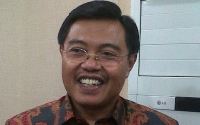
Tikno Sutisna President Director of PT Industri Telekomunikasi Indonesia (Persero)
2014/01/02How did PT INTI evolve from a purely manufacturing based company into an industry focused on systems solutions and integration in technology?
PT Industri Telekomunikasi Indonesia (Persero), as well known as INTI, was founded in 1966 as the result of the cooperation between Perusahaan Negara (PN) Telecommunications and Siemens AG. In 1968, this cooperation led to the establishment of PTT (Factory Telephone & Telegraph), which was part of LPP Postel (Post and Telecommunication Research & Development).
-

Climate change laws around the world
2017/05/14There has been a 20-fold increase in the number of global climate change laws since 1997, according to the most comprehensive database of relevant policy and legislation.
The database, produced by the Grantham Research Institute on Climate Change and the Environment and the Sabin Center on Climate Change Law, includes more than 1,200 relevant policies across 164 countries, which account for 95% of global greenhouse gas emissions.
-

Indonesia Year in Review 2016
2017/04/17Structural reforms coupled with solid macroeconomic fundamentals saw Indonesia continue its positive increase trajectory in 2016.
According to the IMF, GDP was expected to expand by 5% in 2016, just short of the 5.3% targeted in the budget and up from 4.8% the previous year.
Inflation, meanwhile, remained within the target range of 3-5% for the second year running, according to the fund, which estimate an increase of 3.3% in 2016 and just over 4% this year.
-
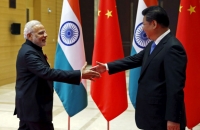
Asia Economic Roundup: July 2016
2016/07/18Without a doubt Britain’s decision to abandon the European project will be remembered globally as a wake-up call for political elites around the world. It seems the people chose to go against immediate economic interest and accept an extra financial turmoil in order to address deeply seated social and identity issues.
Although Asia’s exposure to the UK is relatively limited and this is not exactly a “Lehman Moment”, nonetheless we can expect a lively debate as policymakers in Asia look for an appropriate response to address the needs of vulnerable households.
-
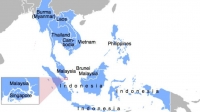
Towards A Transboundary Haze-Free ASEAN By 2020: Prevention And Collaboration
2015/11/16To sustain the efforts of a transboundary haze-free ASEAN, it is significant to remain vigilant and be prepared early enough to prevent any occurrence of fires. This calls for better early warning systems and swift deployment of fire-fighting resources even before the fires starts.
-

The changing landscape of who owns what in Indonesia'
2015/05/15The financial and political crises of 1998 brought about significant changes in Indonesia’s corporate landscape. The proportion of Indonesian firms with political connections remains relatively high but is declining, as modes of political engagement are becoming increasingly varied.
Indonesian walk pass the trade monitor at Indonesia Stock Exchange in Jakarta, Indonesia. -
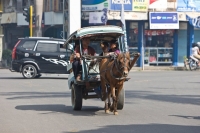
The economy in Indonesia rounded out 2013
2014/03/05The economy in Indonesia rounded out 2013 by posting relatively solid increase, despite a decline in world commodity prices and an increase in energy imports. The coming year’s performance is expected to be in high single digits, but risks include a tightening of external financing conditions and a softening of private consumption.
Estimates have put Indonesia’s year-end increase rate at between 5.8% and just over 6%, a figure the government expects will be surpassed in 2014, with GDP estimate to expand by 6-6.4%. Exports are projected to rebound, while dependence on imported energy is set to decline as domestic oil and gas production expands, and biofuels usage climbs.
-

Indonesian Government put into force a full ban on raw mineral ore exports
2014/03/03In January 2014, the Indonesian Government put into force a full ban on raw mineral ore exports as stipulated by the 2009 Mining Law. In an interview with United World, the Vice Minister of Energy & Mineral Resources Susilo Siswoutomo explains how the implementation of this act will presently induce players in the industry to add price to production,
-
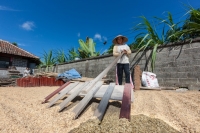
Cost of doing business hurting Indonesia’s growth
2014/01/05Indonesia is one of Asia’s economic success stories, with the reforms of the reformasi period having laid strong foundations for protracted increase. The country’s economic success looks set to continue but the schedule of reform is far from complete, particularly at the same time as it comes to competitiveness in South East Asia’s intense business environment.
-
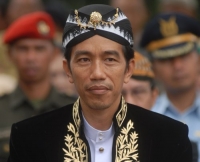
Jokowi or bust
2014/01/05Years from now, analysts will look back on Indonesia’s 2014 elections as a watershed moment in the country’s democratisation.
Less than a year out from the presidential poll scheduled for July, the race appears likely to be a contest between elite party figures who came of age during the Suharto era and a man who is as much an anti-establishment outsider as a national politician can effectively be in Indonesia.
-
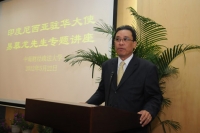
H.E Imron Cotan Indonesia’s ambassador to the People’s Republic of China
2013/01/04In an interview with Vista Reports, Mr. Imron says Indonesia has pursued these goals through its membership in ASEAN (the Association of Southeast Asian Nations), the G-20, the East Asia Summit and APEC (Asia Pacific Economic Cooperation) which Indonesia will chair next year.
- Indonesia News
-
- ENVIRONMENT PROJECTS: Arsyadjuliandi Rachman, Governor of Riau
- SOCIAL / CSR: What’s Gone Wrong With Indonesia’s Democracy?
- EDUCATION: Seychelles promotes eco-culture tourism in Kutai Kartanegara, Indonesia
- CONSTRUCTION / INFRASTRUCTURE: Indonesia Infrastructure, connectivity number one priority
- CONSTRUCTION / INFRASTRUCTURE: SOEs increase capacity to accelerate infrastructure development
- CONSTRUCTION PROJECTS: Chinese developer to launch Indonesia's 1st int'l new industry city
- Trending Articles
-
- BOTSWANA: Bill Gates sees US likely to maintain aid levels for Africa
- NIGERIA: The city that won't stop growing, Lagos
- EUROPEAN UNION: UK seeks to 'align' with EU on data protection rules
- ANGOLA: Buhari Among African Presidents Who Lack Faith in Own Health Systems
- PAKISTAN: Qatar launches new direct sea route to Pakistan
- BOTSWANA: Africa’s economic growth in 2016 was driven by East Africa






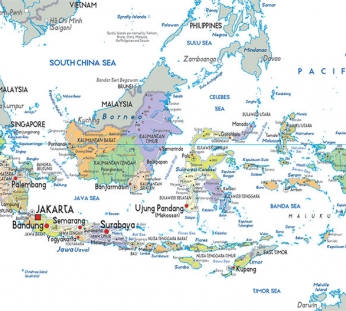








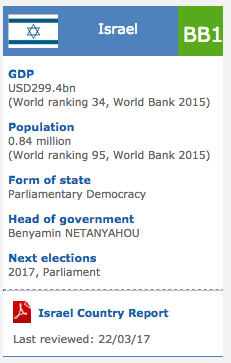
.gif?1356023993)









